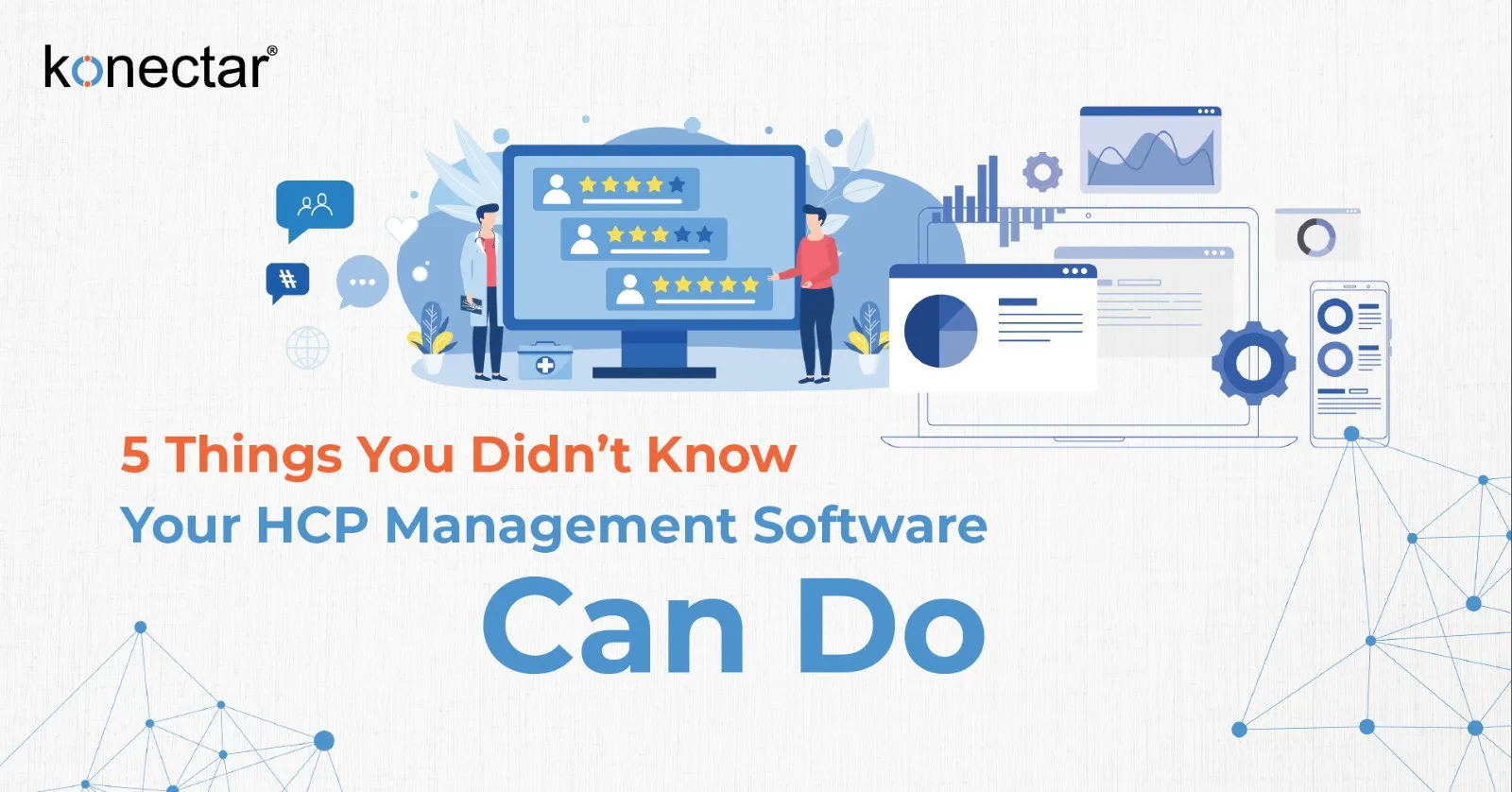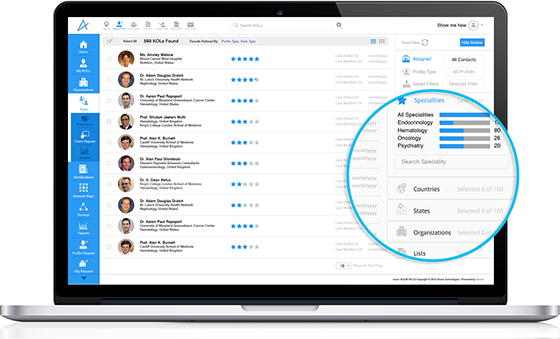15-07-2024
5 Things You Didn't Know Your HCP Management Software Can Do

In the life sciences industry, managing relationships with healthcare professionals (HCPs) is more than just tracking interactions. It's about building trust, driving meaningful engagement, and making data-backed decisions that truly fuel scientific and commercial success.
Most teams use their HCP management software for KOL identification and basic CRM tasks—but modern platforms can do so much more. If you're still relying on tools that give limited insights or require juggling multiple systems to get a clear picture, it might be time for a change.
The latest AI-powered solutions deliver insights that can transform how you identify, engage, and understand HCPs across therapeutic areas. Here are five powerful capabilities you may be oblivious to.
In this article:
- Advanced HCP Segmentation and Mapping
- Scalability and Customization
- Integration Capabilities
- Social Media Analytics
- Payment Analytics
- Conclusion
- FAQs
Beyond Identification: Advanced HCP Segmentation and Mapping
KOL management software today goes far beyond basic engagement tracking. Modern platforms offer advanced analytics that provide invaluable insights for strategic decision-making. They allow you to identify high-value HCPs and KOLs based on publications, clinical trials, conferences, and social media activity. You can also segment HCPs by influence level, engagement history, scientific contribution, and even network strength. It also lets you map interconnections between HCPs, medical societies, and institutions to uncover collaboration patterns and advocacy clusters.
Scalability and Customization
If your platform offers customization capabilities, it's worth exploring how to leverage them fully. Not all HCP management solutions come with this flexibility, but having it allows you to scale the platform to match your organization's evolving needs. You can tailor dashboards, reports, and workflows to reflect the specific requirements of different teams, therapeutic areas, or regions. This level of customization helps ensure that each team can focus on what matters most to them, optimizing processes and achieving unique objectives more efficiently. As your organization grows or shifts focus, a scalable and customizable platform adapts with you, preventing the need for frequent system replacements or additional tools.
Integration Capabilities
Integration is another critical aspect of maximizing the value of your HCP management system. Some platforms are designed to seamlessly connect with legacy CRM systems, internal databases, and external data sources, creating a unified ecosystem of information. This eliminates data silos and fragmentation, giving your organization a single, comprehensive view of HCP engagement and activity. With real-time, up-to-date access to data, teams can streamline workflows, collaborate more effectively, and make faster, more informed decisions. Integration also enables cross-functional teams, including medical, marketing, and commercial, to align strategies, track outcomes, and respond quickly to evolving market trends.
Social Media Analytics
Many physicians have significant followings on professional platforms, sharing insights that can shape medical discussions globally. With the right tools, you can track HCP activity and engagement on social media, identify digital opinion leaders (DOLs) who influence large online audiences, and analyze the reach and impact of posts related to your therapy area. If you're not sure whether your current system supports this, check with your service provider. Leveraging social media analytics helps pharma companies build engagement strategies that bridge scientific expertise and digital influence, which is essential in today's omnichannel environment.
Payment Analytics
Manually tracking payments and disclosures across multiple geographies can be time-consuming and prone to errors. Platforms like konectar simplify this process by providing comprehensive insights into HCP-industry payments, ensuring both accuracy and transparency. With these tools, organizations can track a wide range of financial interactions, including honoraria, speaker fees, travel support, and other professional engagements. Payment analytics also help organizations understand engagement patterns and optimize their strategies, enabling more efficient and responsible collaboration with HCPs.
Conclusion
Harnessing the full potential of your HCP management software is key to driving superior campaign results and staying ahead in a competitive landscape. Check with your service provider to see if your platform includes these critical features. By exploring and leveraging the advanced capabilities outlined above, life sciences teams can optimize KOL management, streamline workflows, and achieve marketing objectives with greater confidence and efficiency.
konectar, an AI-powered HCP management solution, brings these and many more features together, offering advanced analytics, integration, and scalability to help teams engage HCPs more strategically and make informed decisions. To know more, request a demo.
FAQs
- What is an HCP management software?
HCP management software is a platform used by life sciences companies to identify, engage, and manage Healthcare Professionals (HCPs) within the healthcare industry. Companies leverage the expertise and influence of these KOLs for strategic initiatives such as marketing campaigns, clinical trials, and educational programs.
- How does an HCP management software identify and engage DOLs?
An HCP management software uses advanced search algorithms and filters to identify KOLs who align with specific goals of life sciences companies and facilitate targeted outreach.
- What is konectar?
konectar is an AI-powered HCP management platform designed for life sciences companies to provide data-driven insights about the HCP landscape. It helps teams to identify relevant HCPs and streamline interactions and collaborations with them. konectar integrates advanced technologies and has various features and tools to enhance efficiency and effectiveness in managing relationships with key stakeholders.
- How is HCP Management Software different from Practice Management Software?
HCP Management Software focuses on discovering, profiling, and engaging healthcare professionals (HCPs) for various initiatives. It provides analytics and compliance features for strategic collaborations and marketing initiatives. In contrast, Practice Management Software is designed to optimize operational tasks within healthcare practices. This includes scheduling appointments, billing, and patient records management. Each serves distinct roles in healthcare operations and industry-specific engagements.





